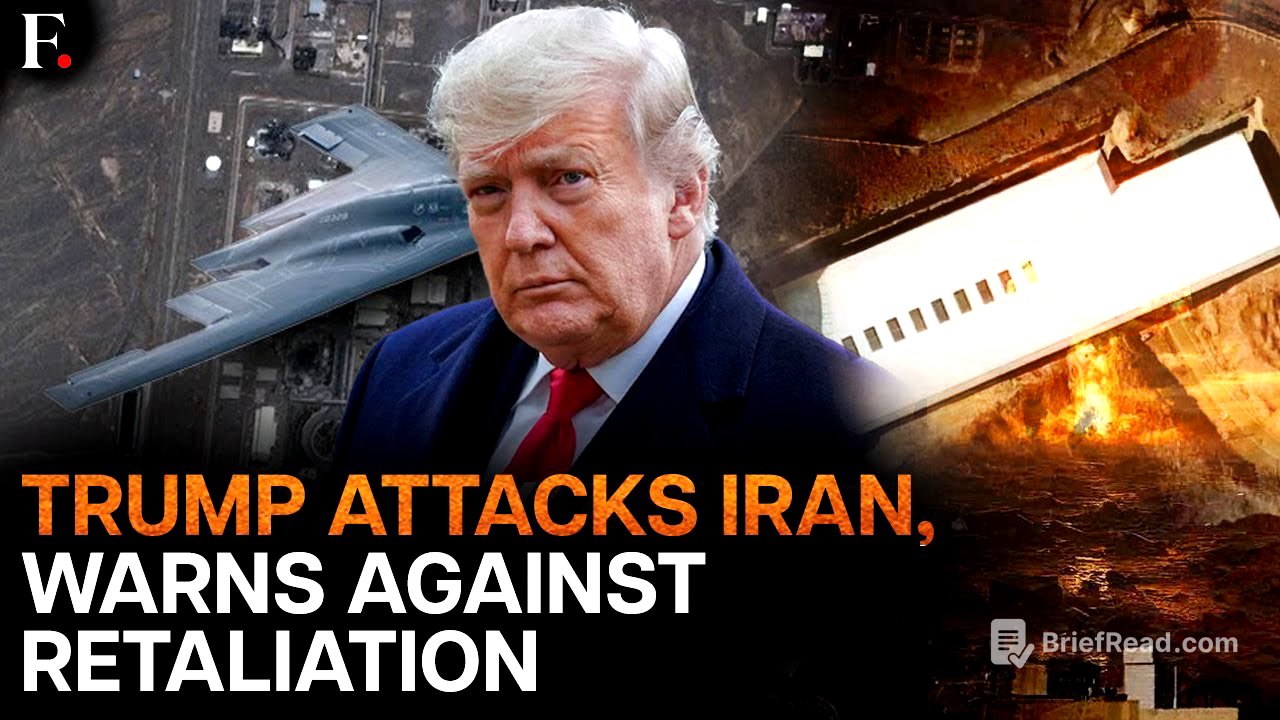TLDR;
The US has officially entered the Israel-Iran war, escalating tensions in West Asia. President Trump announced US military strikes on Iranian nuclear facilities in coordination with Israel. Iran has responded with missile attacks on Israel and warnings of further action. The situation poses risks to global energy markets and raises concerns about a wider conflict.
- US military strikes on Iranian nuclear facilities.
- Iran retaliates with missile attacks on Israel.
- Rising tensions and potential impact on global energy markets.
US Enters Israel-Iran War [0:00]
The United States has officially entered the Israel-Iran war. President Trump announced that the US military, in coordination with Israeli forces, carried out major strikes on three of Iran's critical nuclear facilities: FOD, Natanz, and Isfahan. Trump stated that these facilities were "completely and totally obliterated" and praised the joint effort with Israel as unprecedented.
Details of the US Strikes [0:52]
The US military conducted precision strikes on Iranian nuclear facilities, aiming to destroy Iran's nuclear enrichment capacity and stop the nuclear threat. The strikes involved over 30 Tomahawk missiles launched from US Navy submarines and B2 stealth bombers carrying GB57 bunker buster bombs. Trump watched the operation from the situation room and thanked his national security team.
Iran's Response and Retaliation [3:28]
Iran swiftly condemned the US attack as a violation of international law, reserving all options to defend its sovereignty. Iran's Supreme Leader had previously warned of irreparable damage from any US military intervention. Iran fired ballistic missiles targeting Israel, resulting in casualties and placing US bases in the region on high alert. Intelligence reports suggest Iran has pre-approved plans to strike American targets in the Middle East if provoked.
Impact on Energy Markets and Israeli Reaction [4:51]
Rising regional tensions pose a risk to global energy markets, with potential Iranian actions in the Strait of Hormuz affecting oil traffic. Qatar Energy and Greek shipping authorities have advised vessels to avoid the area. Israeli Prime Minister Netanyahu applauded Trump's decision, stating that the joint strike would change history and thanking him for his support.
Ground Situation and Casualties [6:00]
Iran's armed forces targeted multiple sites in Israel, including the Bengurian airport, using suicide and combat drones as part of the "True Promise Operation 3". Iran claims 400 people have been killed and 3,000 injured from Israeli strikes, while retaliatory attacks on Israel have left at least 24 dead. Despite the escalating conflict, Trump appears ready for further action.









